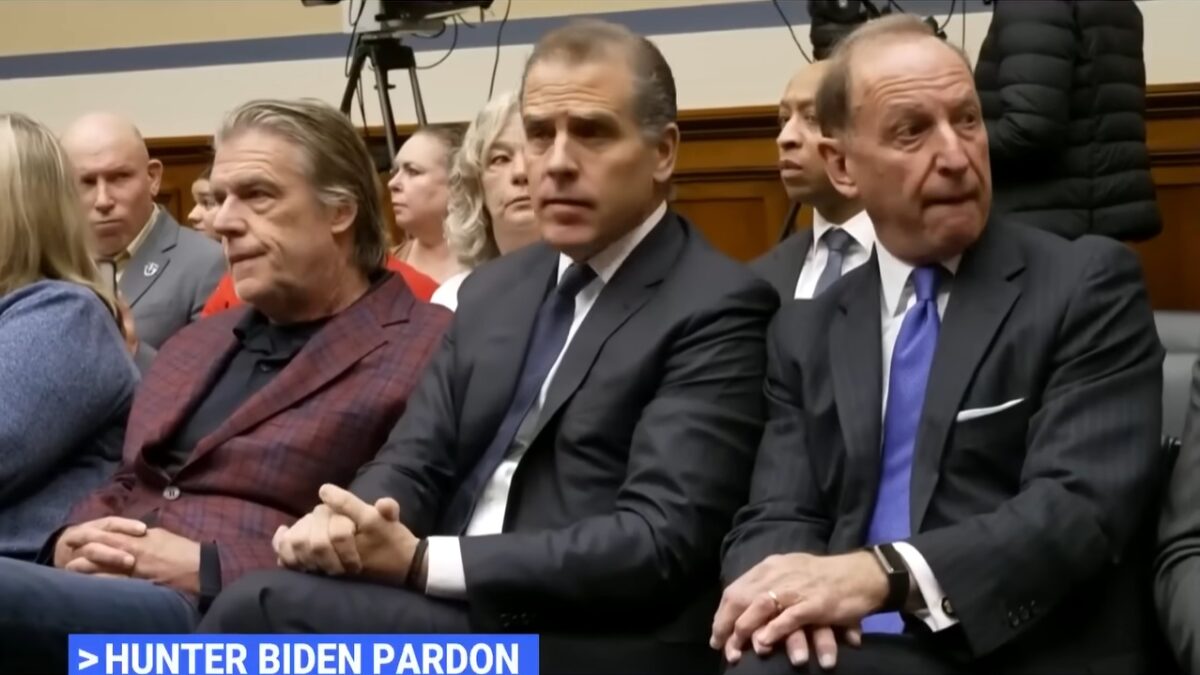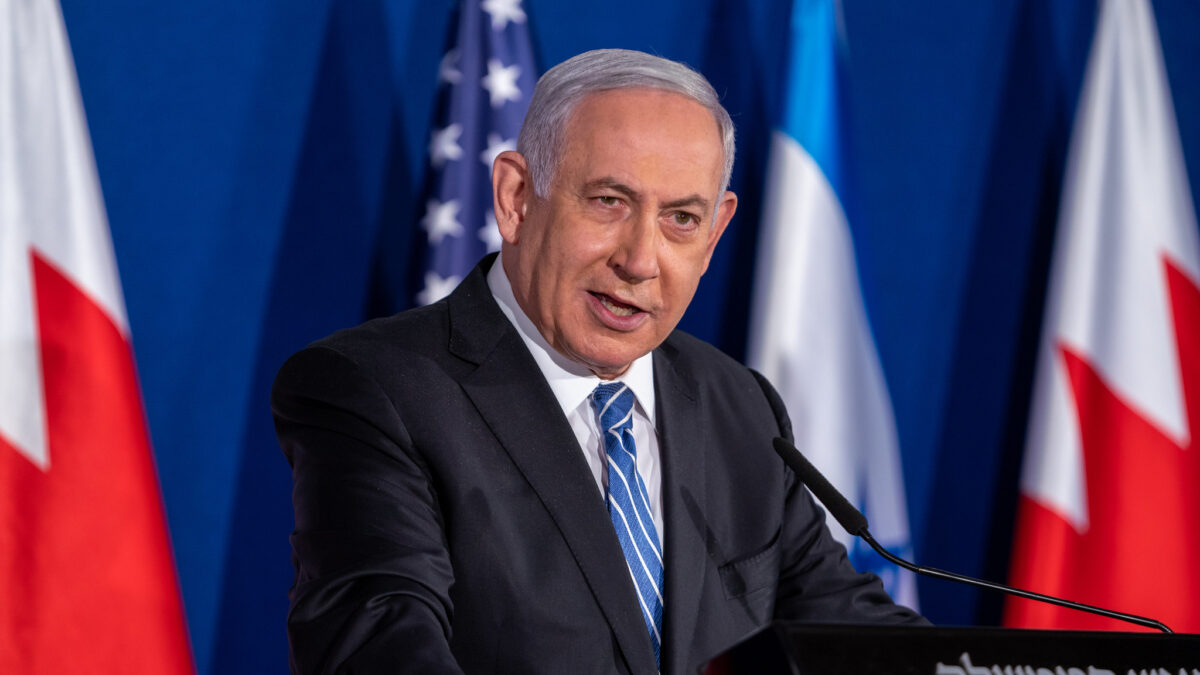
Various folks expressed surprise when the Associated Press wrote “Texas Gov. Rick Perry and Sen. Rand Paul of Kentucky pounced Friday on President Barack Obama’s ‘we don’t have a strategy yet’ comments.”
Rick Perry, sure, but Rand Paul? Isn’t he supposed to be an “isolationist” as the AP claims in a later paragraph?
The broader debate pits those who favor the GOP's traditional muscular foreign policy — a group that includes Perry and Florida Sen. Marco Rubio — and those, like Paul and Cruz, who prefer a smaller international footprint. The so-called isolationist approach plays well with grassroots activists and a war-weary public, but worries many Republican officials and donors who prefer an aggressive American role in world affairs.
Oh please. Preferring a smaller international military footprint is hardly isolationism. It could simply indicate support for good old-fashioned statesmanship, propriety, conservatism, or even just an acknowledgement of limited human and financial resources. Certainly there are people whose idea of national defense is so limited that it might be called isolationism — and Paul is certainly closer to these people than Dick Cheney is. But people who believe in robust trade between nations, healthy use of diplomacy — but also not bombing most of the countries that have serious problems — these aren’t isolationists! And Rand Paul and others whose view of limited government extends to our foreign military entanglements are not accurately termed isolationists. Yes, it’s kind of tricky for AP writers and more bellicose members of the right to get this because Rand Paul is of course the son of Ron Paul and, well, sometimes his foreign policy views tend toward extremes.
Though this does remind me of something I’ve been fond of saying for a while. Which is that Rand Paul is what you’d get if Ron Paul and a normal person had a baby, and this is exactly what happened.
Anyway, the AP goes on to quote Paul as saying “If I were President, I would call a joint session of Congress. I would lay out the reasoning of why ISIS is a threat to our national security and seek congressional authorization to destroy ISIS militarily.” In a Q&A session that same day, he laid out his thinking a little bit:
I think the strategy has to be that you have an open debate in the country over whether or not ISIS is a threat to our national security. And it's not enough just to say they are. That's usually what you hear—you hear a conclusion. People say, "Well, it's a threat to our national security." That's a conclusion. The debate has to be: Are they a threat to our national security?
Our national security doesn't have to be just stopping at our borders. It can include our embassy personnel. It can include our soldiers. It can include citizens, and people involved in business, and journalists—things like that. So I think it is a real debate. What I would do, if you want a strategy, you have to go to the American people. You have to go to Congress. I would convene a joint session of Congress, and I would ask for permission from Congress and say, "These are the reasons why I think ISIS is a threat to us. This is why we should be involved." If [President Obama] doesn't do that, then I think he doesn't galvanize support, we look weak to the world, and in the end we don't really have a strategy.
There’s much here to chew on. Paul recognizes both the leadership role the president should have and the authorization role that Congress has. This is from that 100+-years-old Constitution you’ve heard so much about. He’s also discussing the importance of determining the nature of the threat ISIS poses to our country. They’re currently kidnapping and beheading our journalists with more or less impunity and are hoping to accomplish much more. You could learn all about this in their videotaped “messages to America” but putting our heads in the sand is probably not the best response even if we decide not to fight them so as to stop their abuses of our countrymen. But he’s making the point that the case must be made and that we must get a strategy and defend our interests. If you think this is either isolationism or a radical departure from all the other Constitutional-obsessed comments Paul has made, you’re just not understanding his position.
Take, for example, this Wall Street Journal piece from mid-June headlined “America Shouldn’t Choose Sides in Iraq’s Civil War.” You might point to that headline and say, “A ha! Flip-flopping!” But two things. One, that headline may have performed a disservice to a piece that had positive words for protecting American interests, personnel and buildings in the region and didn’t rule out air strikes, among other action. And two, it’s not like he is now calling for us to pick sides. He’s saying we should discuss whether ISIS is now our business.
Some critics point to Paul’s Journal piece from last week that was headlined and subhedded: “How U.S. Interventionists Abetted the Rise of ISIS: Our Middle Eastern policy is unhinged, flailing about to see who to act against next, with little thought to the consequences. This is not a foreign policy.” They say that his comments this past weekend differ from this piece. Well, they have a different focus but they in no way contradict each other. This piece is a blistering critique of unwise foreign policy moves made by our country, moves that showed a complete lack of strategy or foresight. But it doesn’t mean he’s saying that therefore we should do nothing whatsoever about the threat posed by ISIS. Indeed, in the piece he writes:
The Islamic State represents a threat that should be taken seriously. But we should also recall how recent foreign-policy decisions have helped these extremists so that we don't make the same mistake of potentially aiding our enemies again.
It’s not just Paul who gets this weird treatment in the press. It’s basically the entirety of voters who can distinguish between two different situations.
Let’s look at this tweet from the Washington Post’s Aaron Blake:
The GOP ditches its momentary non-interventionism http://t.co/kjpGDlgBxz pic.twitter.com/HbMJW8YLuy
— Aaron Blake (@AaronBlakeWP) September 2, 2014
The link goes to an article headlined “Republicans reclaim their status as the party of hawks.” The url is “after-flirting-with-doves-the-gop-returns-to-the-hawks.” It begins:
Remember when the Republican Party was quickly shifting toward a new brand of Rand Paul-esque foreign policy non-interventionism? No more.
GAH. Again, belief that we should not nation-build or get involved in every other country’s domestic crisis does not mean that you can’t believe in fighting people who are a legitimate threat. I’m not even making the case that ISIS is that threat, so much as hoping we have a conversation about it since if we were to truly deal with them, it would require a great bit more from us than our recent-decades’ model of fighting wars.
As Andrew McCoy wrote, “Has GOP gone back to interventionism or simply displayed a commendable ability to discern interests?”
Seriously! Just because someone doesn’t agree that we should have gotten involved, possibly on the wrong sides, in Libya, Egypt or Iran doesn’t mean that engagement with brutal threats is likewise wrong. The biggest problem here is a media that thinks that all war and all non-interventionism are equivalent. They’re not. Some wars are necessary and just, some are foolish and unjust. The whole point of a self-governing, virtuous people is to determine which ones are which.
And that doesn’t even get into the completely normal negative reaction to following up our wars with so-called nation-building, at huge expense and with highly questionable results. Many of us are opposed to that while also wanting to retain a strong national defense.
Consider this:
A question for those who want all-out war against ISIS: After the war, what? Occupation of Syria and Iraq? What's the plan?
— Jeffrey Goldberg (@JeffreyGoldberg) September 2, 2014
I actually like the question, but wonder why the only suggestion Goldberg offers is “occupation.” What if we looked at war’s end as peace, with an encouragement that others learn not to disturb the peace lest war come again? Not occupation and nation-building but just a very clear message that you don’t kill our ambassadors, commit genocide, take our embassies, behead our people or threaten us. This would require so much more from us than we currently do. It would mean, first off, actually fighting wars when necessary instead of mission-creeping strikes here and there that go on for years or even decades and accomplish little other than mayhem. It would mean our statesmen would have to be clear about our expectations regarding peace and that we be willing to back those expectations up. It would mean not meddling in others’ affairs and limiting our business to our business. But it would mean, then, minding our business hard. It’s basically the opposite of much of what we’ve been doing through the last several presidencies. But unless we want to lose more wars, we shouldn’t keep on with the current way of doing things.
The media and certain elements of the right would be less confused about restrained interventionism if they stopped caricaturing it as isolationism. They might also learn some lessons about how to build support for major efforts, how to have clear strategies understood at home and abroad, and how to stop wasting our military on non-military enterprises.









